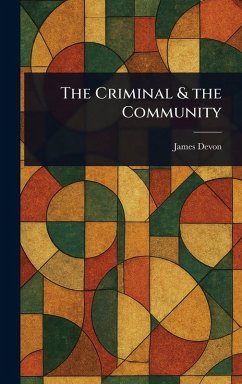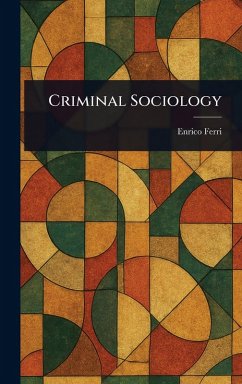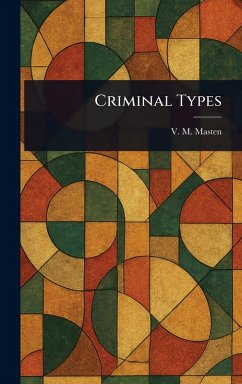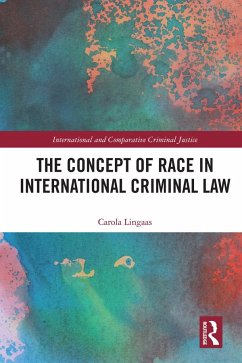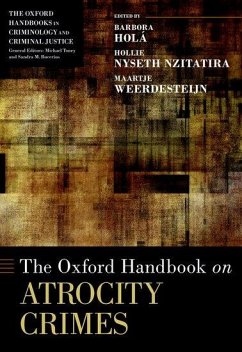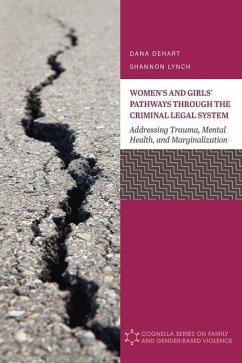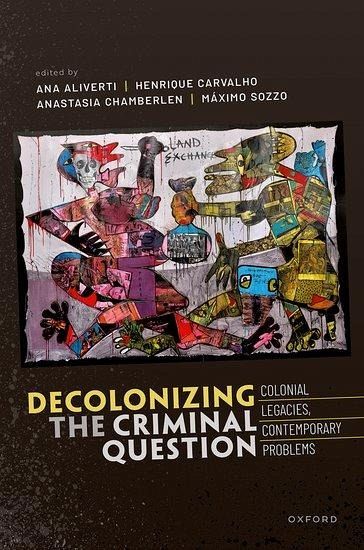
Gebundenes Buch
Decolonizing the Criminal Question
Colonial Legacies, Contemporary Problems
Herausgeber: Aliverti, Ana; Sozzo, Máximo; Chamberlen, Anastasia; Carvalho, Henrique
Versandkostenfrei!
Versandfertig in über 4 Wochen

PAYBACK Punkte
74 °P sammeln!




This volume explores the uneasy relationship between crime, crime control and colonialism, foregrounding the relevance of the legacies of this relationship to criminological enquiries. It invites and pursues a better understanding of the links between imperialism and colonialism on the one hand, and nationalism and globalisation on the other.
Ana Aliverti is a Professor of Law at the School of Law, University of Warwick. She holds a D.Phil. in Law (Oxford, 2012), an MSc in Criminology and Criminal Justice (Distinction, Oxford, 2008), an MA in Sociology of Law (IISL, 2005) and a BA in Law (Honours, Buenos Aires, 2002). Her research explores questions of national identity and belonging in criminal justice, and of law, sovereignty and globalisation. She has led extensive empirical work in the UK's criminal justice and immigration systems. She is the author of Crimes of Mobility (Routledge, 2013) and Policing the Borders Within (OUP, 2021). She was co-awarded the British Society of Criminology Best Book Prize for 2014, and has received the British Academy Rising Star Engagement Award (BARSEA) (2015), the Philip Leverhulme Prize in Law (2017), and the British Journal of Criminology's Radzinowicz Prize. She is co-Director of the Criminal Justice Centre at Warwick and the Associate Director of Border Criminologies. Henrique Carvalho's research interests lie in the areas of criminal law, criminalisation and punishment, and legal, social, political and cultural theory. He joined the University of Warwick in September 2015, having previously worked as a Lecturer in Law at City, University of London, a Visiting Lecturer at King's College London and a Graduate Teaching Assistant at the London School of Economics. Anastasia Chamberlen's research interests lie in the areas of theoretical criminology, the sociology of punishment and prisons, feminist theory and theoretical debates in the study of emotions, embodiment and the arts in criminal justice. Having previously worked as a lecturer in criminology at Birkbeck, University of London, she joined Warwick's Sociology Department in 2016 as Associate Professor of Sociology. Over the last 25 years Máximo Sozzo has completed research in different areas of contemporary criminology, always with a focus on Latin America and Argentina. He is now working on prisons and power, historical transformations of punishment, the mechanisms of sentencing without trial, and the travels of ideas about the criminal question across the Global North and South.
Produktdetails
- Verlag: Oxford University Press
- Seitenzahl: 416
- Erscheinungstermin: 8. September 2023
- Englisch
- Abmessung: 236mm x 164mm x 29mm
- Gewicht: 807g
- ISBN-13: 9780192899002
- ISBN-10: 0192899007
- Artikelnr.: 67863129
Herstellerkennzeichnung
Libri GmbH
Europaallee 1
36244 Bad Hersfeld
gpsr@libri.de
Für dieses Produkt wurde noch keine Bewertung abgegeben. Wir würden uns sehr freuen, wenn du die erste Bewertung schreibst!
Eine Bewertung schreiben
Eine Bewertung schreiben
Andere Kunden interessierten sich für



